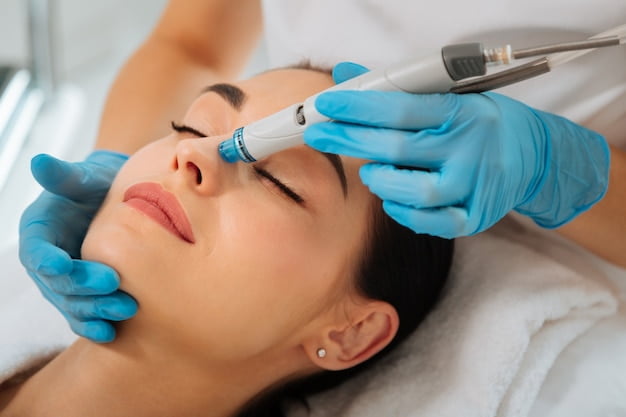
Contents
Introduction
Pregnancy is a special time in a woman’s life when she prioritizes her health and well-being. During this period, expectant mothers are often cautious about the products and treatments they use, including skincare procedures like Hydrafacial. In this comprehensive guide, we will explore the safety of Hydrafacial during pregnancy and provide insights to help pregnant women make informed decisions about their skincare routine.
Understanding Hydrafacial
Hydrafacial is a popular non-invasive skincare treatment that combines exfoliation, extraction, and hydration. It involves the use of a specialized device that cleanses and nourishes the skin using a combination of serums, water, and suction. The procedure is known for its ability to improve skin texture, address concerns like acne and hyperpigmentation, and promote overall skin health.
Safety Considerations during Pregnancy
When it comes to skincare treatments during pregnancy, it’s essential to consider the safety of the products and procedures used. Although Hydrafacial is generally considered safe, there are a few factors to keep in mind before undergoing the treatment:
- Consultation with a Healthcare Provider: Pregnant women should always consult their healthcare provider before undergoing any skincare treatments. While Hydrafacial is non-invasive, it’s best to ensure that there are no underlying conditions or individual concerns that could pose a risk during pregnancy.
- Ingredients in Hydrafacial Serums: Hydrafacial involves the use of different serums during the treatment, such as hydrating serums, brightening serums, or serums targeting specific skin concerns. It is crucial to review the ingredient list of these serums to ensure they do not contain any potentially harmful substances that could be absorbed into the bloodstream.
- Sensitivity and Allergies: Pregnancy can cause changes in the skin, making it more sensitive and prone to allergies. It is essential to discuss any known skin sensitivities or allergies with the skincare professional performing the Hydrafacial. They can tailor the treatment and choose suitable products that are less likely to cause adverse reactions.
- Comfort during the Procedure: Hydrafacial involves the use of gentle suction and exfoliation techniques on the skin. However, due to the increased blood flow and sensitivity during pregnancy, some women may find certain aspects of the procedure uncomfortable. It is crucial to communicate any discomfort during the treatment to ensure adjustments can be made to provide a more pleasant experience.
Alternatives to Hydrafacial during Pregnancy
If a pregnant woman is concerned about the safety of Hydrafacial or if their healthcare provider advises against it, there are alternative skincare options to consider:
- Gentle Cleansing: Using a mild, pregnancy-safe cleanser twice a day can help keep the skin clean and fresh. Look for products without harsh chemicals or fragrances that can potentially irritate the skin.
- Moisturization: Keeping the skin hydrated is crucial during pregnancy. Opt for a pregnancy-safe moisturizer that suits your skin type to help maintain its moisture balance.
- Sun Protection: Protecting the skin from harmful UV rays is important for everyone, including pregnant women. Choose a pregnancy-safe sunscreen with broad-spectrum protection and a minimum SPF of 30 to shield your skin from sun damage.
Conclusion
Hydrafacial can be a beneficial treatment for improving skin health and addressing various concerns. However, it’s important to prioritize safety during pregnancy. Consultation with a healthcare provider and an experienced skincare professional is essential to determine whether Hydrafacial is suitable for an individual during this special time. If in doubt, there are alternative skincare routines available that can still help maintain healthy and radiant skin throughout pregnancy. Remember, taking care of your skin also means taking care of your overall well-being during this remarkable journey.




